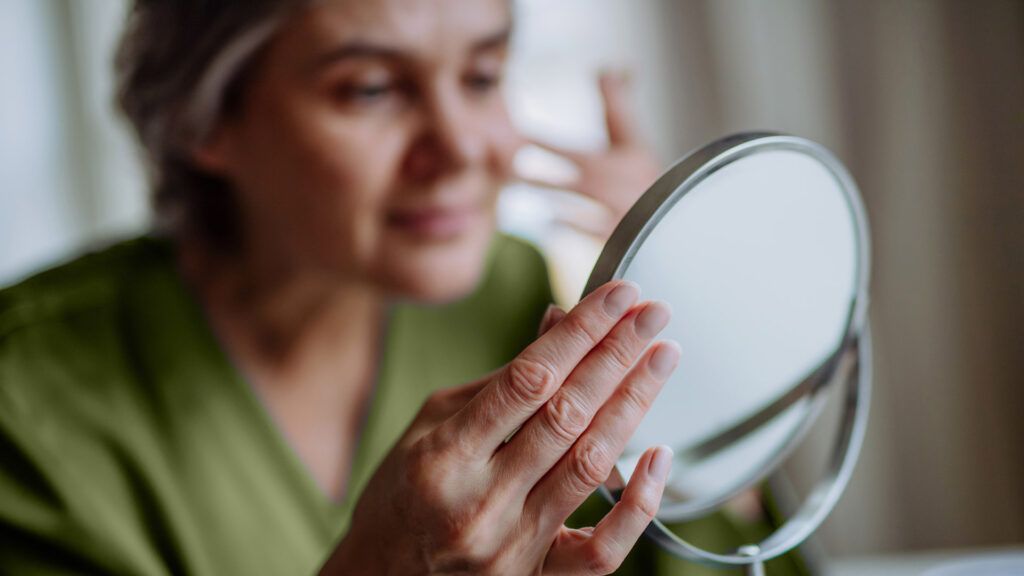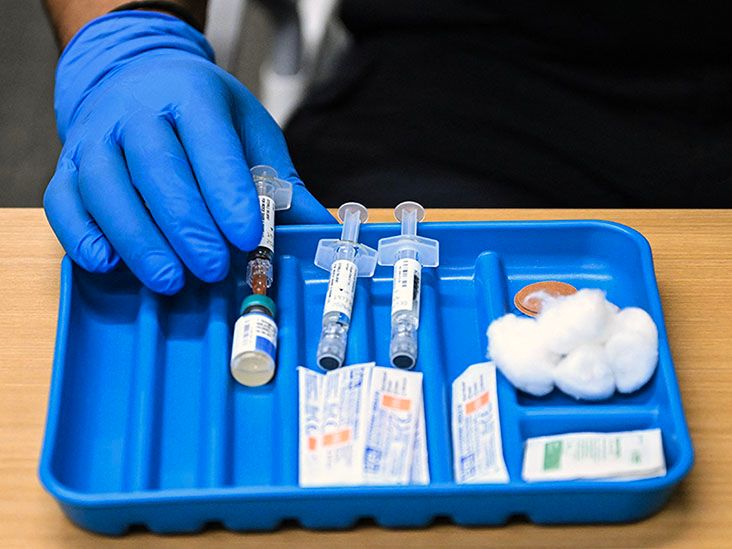Rosacea is a skin condition sometimes associated with gastrointestinal health. Probiotics are a type of living microorganism that promotes gut health and in some cases, may help treat rosacea.
Probiotics live in certain foods and drinks or can be taken as a supplement. They have several health benefits, including promoting a balanced and healthy gut microbiota.
This refers to the variety of bacteria, fungi, and other microorganisms that live in a person’s gastrointestinal tract.
Rosacea is an inflammatory skin condition that some experts believe can be related to various gastrointestinal conditions.
This article outlines whether and how probiotics may be an effective treatment for rosacea, different forms of probiotics, and further details of the connection between gut and skin health.

Some people may find that including probiotics in their diet or taking probiotic supplements improves their rosacea symptoms, but there is insufficient evidence to determine whether this is effective.
Research into the connection between rosacea, the gut microbiota, and probiotics is ongoing, and experts are still learning about these connections.
A 2024 research review concluded that, while there is likely a link between rosacea and the gut microbiota, there is not currently enough evidence to say that probiotics are definitely an effective treatment for the condition.
However, several studies have found evidence that probiotics may effectively treat or prevent other inflammatory skin conditions, such as atopic dermatitis, inflammatory acne, and psoriasis.
Probiotics refers to a group of living microorganisms mostly made up of specific types of “friendly” bacteria, although some types of yeast are also probiotics.
These bacteria help promote and maintain a healthy gut microbiome, meaning the environment where all the bacteria, fungi, and other microorganisms in the gut live.
However, more research is necessary to fully understand how to use probiotics safely and effectively for rosacea.
The connection between gut and skin health is called the gut-skin axis. This refers to the two-way relationship between the gut microbiome and skin health and how they affect one another.
Dysregulation in the gut microbiome is called dysbiosis, and it can affect the skin. Inflammatory skin diseases often link to gut changes.
Rosacea likely occurs due to an inflammatory response, which may happen for many different reasons. One possible cause for this inflammation is an imbalance of the gut microbiota, which can cause an inflammatory immune response.
Rosacea is also linked to specific changes in the gut microbiota, including an increase in the bacteria acidaminococcus and megasphaera, along with a decrease in peptococcaceae and methanobrevibacter.
Research on the connection between rosacea and the gut is ongoing, and experts do not yet fully understand how the two affect one another.
More research is necessary to fully understand whether and how probiotics can treat rosacea. However, current research suggests potential benefits of probiotics for individuals with the condition.
Possible benefits include:
- reducing pro-inflammatory cytokines
- promoting immune tolerance and controlling inflammation
- antioxidative effects that reduce skin inflammation
- supporting the skin barrier and reducing skin sensitivity
There are many different types of probiotics that may be useful for treating different conditions. Certain products may include specific probiotics that may be beneficial for rosacea symptoms.
Oral probiotics
Oral probiotics that may be beneficial for individuals with rosacea include:
- Nitrobacter: This genus of bacteria generates nitrate that aids with reducing oxidative stress, increasing blood flow, and supporting skin repair, which may reduce the symptoms of rosacea.
- Lactobacillus: This genus of bacteria has various potential benefits for rosacea, including anti-inflammatory effects, modulating immune responses (reducing the chance of inflammation), and reducing exacerbation due to UV exposure.
- Bifidobacterium: This genus of bacteria includes a range of bacteria that may help rosacea. Benefits include improving skin barrier function and reducing inflammation.
Topical probiotics
There is very limited research concerning the use of topical probiotics to treat rosacea. However, some individuals with rosacea may find topical probiotic products helpful for treating their symptoms.
Topical products containing probiotics, such as bifidobacterium, lactobacillus, and streptococcus thermophilus, may be beneficial for treating rosacea symptoms. However, it’s important that people speak with their doctor or another healthcare professional before using a new product.
If a person is considering oral or topical probiotics for rosacea, speaking with their dermatologist or doctor, or another healthcare professional, before starting any treatment is a key step.
It is important for a person to get medical advice before trying any new treatment, especially if they are already taking antibiotics or other medication.
Probiotics are
Tips for using probiotics safely include:
- Test any topical products on a small patch of skin first and wait 24 hours before using more.
- Use products from established and trustworthy sellers.
- Follow all guidance healthcare professionals provide.
- Stop product use if any adverse effects occur.
Individuals with rosacea should try to avoid the following:
- exfoliating products
- massage or rubbing techniques (on affected skin)
- products with fragrances or harsh chemicals
- UV light (use sun protection and avoid direct exposure where possible, and avoid tanning equipment)
- oil-based makeup or skin care products
In some cases, rosacea can occur due to an overgrowth of certain bacteria.
Treatments for this cab include antibiotics (oral or topical), antiseptic creams, and antimicrobial topical treatment, depending on the diagnosis.
The gut-skin axis refers to the relationship between gut and skin health and how the two affect one another. There is a strong link between the gut and the skin, and using probiotics can help promote the health of both.
A balanced and healthy gut microbiota can help regulate a person’s immune system, reduce inflammation throughout the body, including the skin, and reduce the production of microbes in the gut that can harm the skin.
Experts are still researching how probiotics may help treat rosacea.


